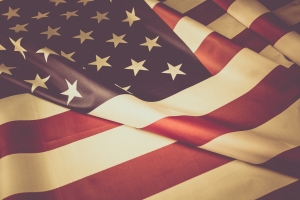Wednesday, November 10, 2021

Veterans Day , 1968, was the last time I saw my beloved husband, Captain David R. Crocker, Jr. He left Connecticut for the war in Vietnam from the tiny Groton Municipal Airport in Groton, Connecticut at 7:00am on November 11, 1968.
The first time I met the survivors of Alpha Company of the 2/22 Infantry in 2006, I was scared. It had been almost four decades since my husband died in a booby-trapped bunker on May 17, 1969. I had never heard a first- person account of precisely what happened, and I still wasn’t sure I was ready to hear the stories. But they wanted to meet me and members of Dave’s family. We had learned from their tributes on the Vietnam Virtual Wall that they cherished his memory so I attended a reunion of the regiment in Idaho.
What was I afraid of? Perhaps simply the peeling back of the protective layer of years since I was informed of the tragedy on that warm spring day in 1969. Back then, I had avoided the nightly newscasts by Walter Cronkite. I couldn’t bear to see bloodied young men carried out of battle. Before the worst happened, superstition about what might protect my beloved governed every move I made. At age twenty-two I still believed in childish charms.
“Don’t step on a crack. It will break your mother’s back.”
For many years that followed, war stories repelled me.
Real war stories are hard for both the teller and the listener. Veterans and other survivors of war may hold back their untold stories for decades. Despite their courage on the battlefield, to describe that experience requires a reach back down into gut-wrenching details that they had tried hard to forget, back to a place where they may have felt guilty to be a survivor.
But, remembering and telling has its power, too. Meeting the men from Dave’s company and hearing their stories of life with him in Vietnam was my first big step towards a kind of healing and a repatriation with myself. Listening to them gave me validation and enabled me to discover, or re-discover, my story. Their memories and stories created within me a safe harbor for exploring feelings, being able to listen, and finding words to tell my story. Writing helped me to go even deeper and figure out what I needed to understand. As Ann Lamott says in Bird by Bird, “Becoming a writer is about becoming conscious.”
Poet and writer Hanif Willis-Abdurraqib describes in his essay, Drunk in a Midnight Choir, that writing is so much more than actual writing. He says “the work” of writing is also the work of living. It is the work of loving others when we can, taking care of ourselves when we can and that those two different types of work are two rivers flowing into the same body of water.
When we write, we are drinking from the entire sea.
Ruth W. Crocker is the author of Those Who Remain: Remembrance and Reunion After War. Subscribe to her blog for more stories about writing at www.ruthcrocker.com.